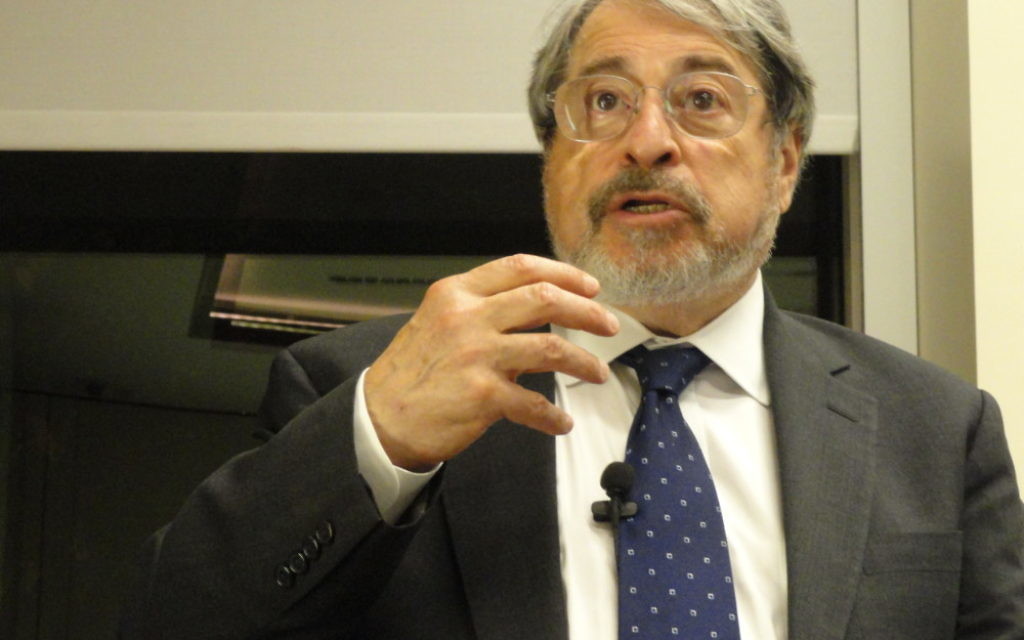When Jews Were America’s Undesirables
“Jews were a confusing crowd for United States officials. They came from different places, spoke different languages; they were hard to pin down,” said Libby Garland, associate professor of history at the City University of New York’s Kingsborough Community College, speaking at a forum Wednesday, Sept. 14, about immigration restriction and American nativism.
Garland has focused her research on Jewish immigrants who entered the United States illegally. Laws restricting “undesirable populations” were enacted by the U.S. government in the early part of the 20th century, forcing many to circumvent them and risk arrest and deportation or imprisonment.
She was one of two speakers at the Tam Institute for Jewish Studies’ eighth annual Rabbi Jacob Rothschild Memorial Lecture at Emory University, titled “Closing the Gates, Building a Wall.”
Get The AJT Newsletter by email and never miss our top stories Free Sign Up
Nativism, the practice of favoring indigenous interests against outside influences, was at the core of the racism and exclusion encountered by refugees in the United States from both world wars. A report in 2010 from the American Immigration Council stated, “Nativism, xenophobia, and racism are hardly uniquely American phenomena. What makes them significant in America is that they run counter to the nation’s founding ideals. … To be a nativist in this country was to be in conflict with its fundamental tenets.”
Jews were one of the groups explicitly targeted, Garland argued, and they were in particularly dire straits in Europe after World War I. “They were a thorn in the side of those who were trying to enforce these new laws.”
Also appearing at the forum was Alan Kraut, professor of history at American University in Washington, D.C., who started out pinning the modern-day nativism tag squarely on Republican presidential nominee Donald Trump.
“We’re at a moment in the history of the United States when a presidential candidate publicly lashes out at ethnic groups with violent language and transparent stereotypes, essentially demanding that others be categorically barred for an unspecified period of time on the altar of national security,” he said. “The grandson of a German immigrant, Trump wants a wall so high on our southern border that it will protect Americans from challenges to American society and culture.”
He added, “This is hardly the first time in our history that we’ve broadcast this kind of dual-edged message regarding the foreign-born, denigrating their heritage, mocking their appearance, religion or mannerisms.”
Kraut cited Edward Alsworth Ross, a sociologist who was fired from Stanford University for advocating the practice of eugenics. In his 1914 book, “The Old World in the New,” Ross freely expressed his hatred for certain groups as biological liabilities, fearing what he called “race suicide.”
Eastern European Jews and the Japanese were Ross’ favorite targets, Kraut said.
Jews were regarded as physically unacceptable to the United States, Kraut said, and unfit to be incorporated into the pioneering breed. “Today, as we ponder the debate over immigration, we might well recall the anti-Semitic nature of an earlier era and the role the physicality of newcomers has played and continues to play in the imagination of immigration opponents.
“Then and now, some Americans tried to repel the foreign-born just as others beckoned them with opportunities and tried to embrace them. It’s a very interesting paradox in a society that prides itself as a nation of nations.”






comments